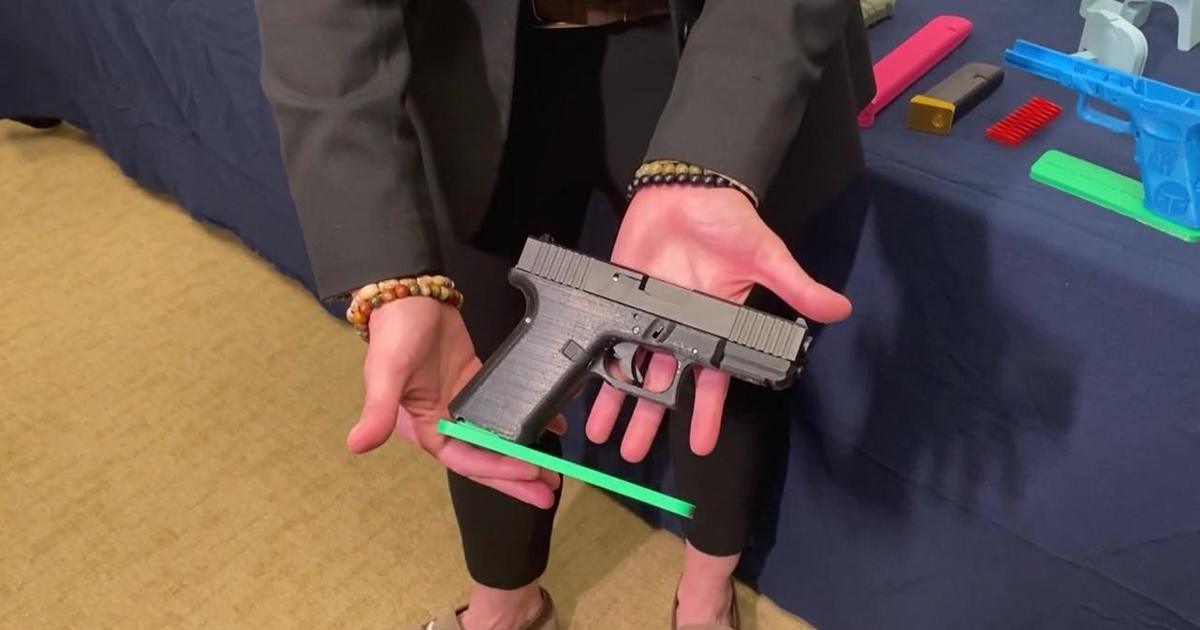WCBS 880 Special Series: Your Future Commute - Tech Helps You Get There
WCBS 880's Wayne Cabot is continuing his week-long look at Your Future Commute. Click here to see all of the segments thus far.
NEW YORK (CBSNewYork) - Around here, we want to get where we're going and we want to get there fast. Technology is already trying to help us do that.
WCBS 880's Wayne Cabot On The Story
Podcast
If you drive with a cell phone next to you, you are a traffic reporter, whether you know it or not. Your location and you speed are sent to companies that then crunch the data and send it off to places like Total Traffic Network, where David Fein is the director of operations.
"It's a controversial topic, but it really enhances product and helping people get to where they have to go," he told WCBS 880's Wayne Cabot.
They call it crowdsourcing.
"That helps us verify how far back a traffic delay goes and what the speed of the road going into an incident or general flow will be," Fein said.
"And that's through people's cell phones?" asked Cabot.
"Not only cell phones. It's all GPS. Anything that could be tracked," Fein said.
"What that data doesn't tell you, I guess, is how long it's going to take to clear, and that's where the eyes on the ground and the experience come into play," said Cabot.
"Yes, that's where our helicopter reports, that's where Tom Kaminski comes in," Fein said.
Kaminski, of course, is WCBS 880's eye in the sky, who reports live from Chopper 880 during morning and afternoon drive Monday through Friday.
"GPS may tell you where to go, how to get there, and it might even tell you where it's backed up, but it can't tell you why it's backed and that's where I come in," Kaminski said.
"And why is that important to know, aside from curiosity?" asked Cabot.
"It's important because if you're looking at a GPS and you're seeing a red line. If it's five miles per hour because there's a stalled car in the right lane and there's a tow truck hooking up to it already, that could be cleared in five minutes," said Kaminski.
But if a truck's on fire, all bets are off.
WCBS 880's Wayne Cabot: Your Car Can Take Over
Podcast
Scott Belcher, President and CEO of the Intelligent Transportation Society. He gave us his George Jetson view of what the commute of the future could realistically be like.
"We're just a the beginning. We're really seeing because of the ability to manipulate data and because of cell phones, you're really starting to see kind of a transformational period in transportation," Belcher told Cabot. "We're seeing vehicles that have got technology that are moving towards semi-autonomous and autonomous driving. So, even today, you can get cars that can help you park. They can help you avoid a rear end collision. They can allow you to use what's called 'autonomous cruise control' so that you stay at a safe driving distance behind the car in front of you and then as technology continues to evolve, we're evolving into what's called 'connected vehicles' where vehicles actually talk to each other to avoid crashes."
How does that happen?
"Well, there's dedicated bandwidth set aside to prevent crashed. So it'll tell you not only that you're about to run into the car in front of you, but if there are cars four, five cars ahead that have slammed on their breaks or gotten into an accident," Belcher said.
So, will it actually put the brakes on your car or will it tell you to do that?
"That's going to depend on what kind of car you decide to drive. Some will just provide you with an audible or haptic message and a haptic message is just a message where it'll feel like you're hitting the rumble strips," Belcher said. "Some vehicles will actually actively intervene. It'll give you a signal that you need to put on the brakes and if you don't put on the brakes, it'll put on the brakes for you."
And you can buy that car right now?
"You can buy cars with each of those different types of safety technologies right now," he said, adding that he thinks it will all be standard some day, like airbags.
As we speak, there are 3,000 cars driving around Ann Arbor, Michigan that talk to each other. It's part of a government experiment.
The results so far?
"The deployment of this connected vehicle technology can reduce non-impaired crash scenarios by 80 percent. That's huge," Belcher said.



